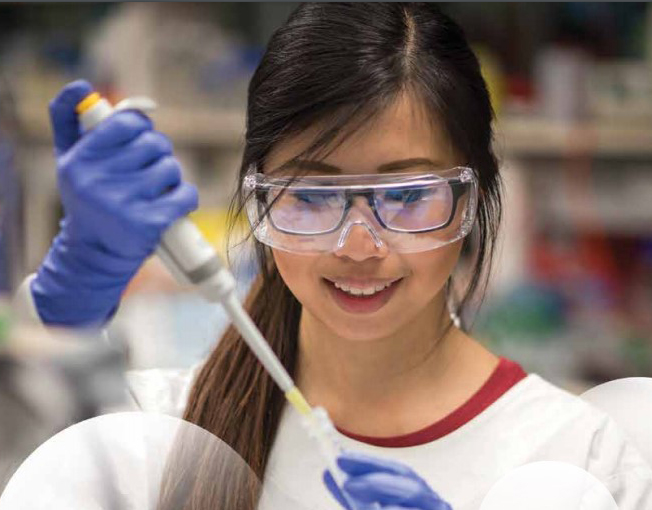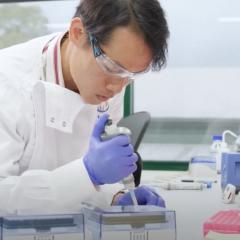 New research could pave the way for more precise treatments for potentially deadly respiratory infections in children with the rare disease ataxia-telangiectasia (A-T).
New research could pave the way for more precise treatments for potentially deadly respiratory infections in children with the rare disease ataxia-telangiectasia (A-T).
The University of Queensland’s Centre for Clinical Research and Centre for Children’s Health Research are investigating why common infections have dire consequences for patients with A-T.
UQ’s Dr Abrey Yeo was said the work was being carried out in association with the National A-T Clinic, the Lady Cilento Children’s Hospital and the Wesley Hospital.
She said cells taken from the airways of A-T patients and healthy control group members were infected with a variety of microorganisms including pneumonia-causing bacteria.
“There were significantly higher rates of cell death in the A-T group when exposed to pneumonia-causing bacteria,” Dr Yeo said.
“Recurrent infections experienced by children with A-T cause considerable damage and fibrosis in their respiratory system, and account for up to 40 per cent of deaths in these children.”
A-T, caused by mutations in the ATM gene, is characterised by progressive difficulty with coordinating movements, susceptibility to lung infections, neurodegeneration and cancer.
The ATM gene provides instructions for making a protein which helps regulate cell survival and division, plays an important role in the normal activity of the nervous and immune systems, and assists cells to recognise damaged DNA strands.
Dr Yeo said bacteria present in the airways triggered a process known as oxidative stress, with free radicals generated from normal metabolic processes.
“In healthy individuals, the body can cope with that stress because ATM, the protein central in the response to oxidative stress, is functioning.
“People who have a dysfunctional ATM protein are not able to cope and, as a result, the oxidative stress leads to inflammation and a whole host of other problems in different tissues of the body, including the lungs.
Dr Yeo said research is under way to profile the microbial species (microbiome) present in the airways of patients with A-T.
“There is no set protocol for treatment of respiratory infections in A-T patients, so they are given a broad spectrum antibiotics which may not be as effective in treating these infections.
“If we are able to identify the microbiome, or a trend in the microbial profile of these patients, we can develop more targeted therapies using more effective antibiotics or even probiotics.
Dr Yeo said one of the challenges of researching such a rare disease was obtaining enough patients for the study and sufficient sample material for experiments.
“This research has initially been carried out with patients who attend the National A-T Clinic in Brisbane, which is the only A-T Clinic in Australia,” she said.
“There are about 50 patients in Australia, and approximately 20 of those attend the clinic.”
The research was supported by BrAshA-T, the A-T Children’s Project USA and the National Health and Medical Research Council.
It is published in the American Journal of Respiratory and Critical Care Medicine.
Rare Diseases Day is Tuesday 28 February 2017.
Media: Dr Abrey Yeo, abrey.yeo@uq.edu.au, +61 7 3346 6029; Kim Lyell, k.lyell@uq.edu.au, 0427 530 647.



